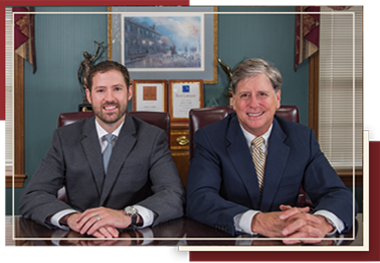Virginia nursing homes get a D from nonprofit watchdog
State gets low marks in nursing home quality standards.
It does not get much more stressful than having to admit a loved one to assisted living or a nursing home. While you know that your family member needs institutional care, everyone is aware of the low standards of care in many U.S. nursing homes.
Virginians will not be happy to learn that Virginia nursing homes received a D rating for two years in a row on its so-called nursing home report card issued by the nonprofit advocacy organization Families for Better Care. The organization compared eight key factors in the 50 states plus the District of Columbia and ranked them according to results. Virginia dropped to 39th in 2014’s rankings, down from 33rd in 2013.
The group looked at data from three sources:
- Kaiser Health Foundation
- Center for Medicare and Medicaid Services
- Office of State Long-Term Care Ombudsman
In 2014, Virginia’s best score was an A in the number of professional nursing hours per resident, which surprisingly rose from a failing grade in just one year. The other grades:
- B: verified ombudsman complaints
- C: facilities with deficiencies and facilities with severe deficiencies
- D: professional nurse staffing above average and direct care staffing hours per resident
- F: direct care staffing above average and health inspections above average
Knowing these numbers, Virginians must monitor nursing home care vigilantly. Nursing home abuse is usually categorized as physical, sexual, psychological, financial or neglectful, and can be manifested in many ways:
- Medication: failure to monitor side effects; improper dosing; overdosing; administration by unqualified staff
- Physical: improper or excessive restraint; inadequate fall protection; improper transport or moving techniques; failure to protect from aggressive residents; staff or visitor assaults; failure to monitor for wandering; failure to follow physician orders; failure to call an ambulance or arrange for hospitalization
- Neglect: dehydration; malnutrition; failure to follow care plans; inadequate wound care; poor hygiene; unsanitary conditions; failure to assist with toileting; failure to prevent bedsores and negligent ulcer care; inadequate infection control
- Sexual: rape; sexual assault; unwanted touching; crude comments; pornography exposure
- Financial or material: missing jewelry and other personal property
- Psychological: isolation; taunting; humiliation
Many of these problems have roots in staffing issues: not enough staff; poorly trained staff; turnover and inability to attract experienced people because of low pay; inadequate background checks and so on.
Family members and friends may notice signs of abuse or neglect that raise red flags. Are there unexplained bruises, rashes, scrapes, cuts and other wounds? Is the patient afraid of a certain staff member? Does the elder provide information? Are there sudden behavior changes like anger, withdrawal, sadness, refusal to eat or crying? Are linens or clothing torn or soiled? Is there a drastic weight change?
If the family member of an institutionalized elder in Virginia suspects abuse or neglect, after calling emergency services or law enforcement, if necessary, and getting needed medical care, consult with a personal injury attorney who handles nursing home negligence lawsuits. Tragically, if a life has been lost during institutional care, the lawyer can advise the family about a wrongful death lawsuit.
In a lawsuit, damages may be available for medical expenses, future long-term care, emotional distress and more.
Importantly, getting legal counsel on board early can help to preserve important evidence that may be uncovered in a law-firm investigation. For example, witnesses should be interviewed while memory is fresh and records reviewed before their alteration or destruction.
With offices in Manassas, Fairfax and Warrenton, the law firm of The Law Offices of Locklin & Coleman, PLLC represents elders and their families in nursing home negligence and similar matters.
















